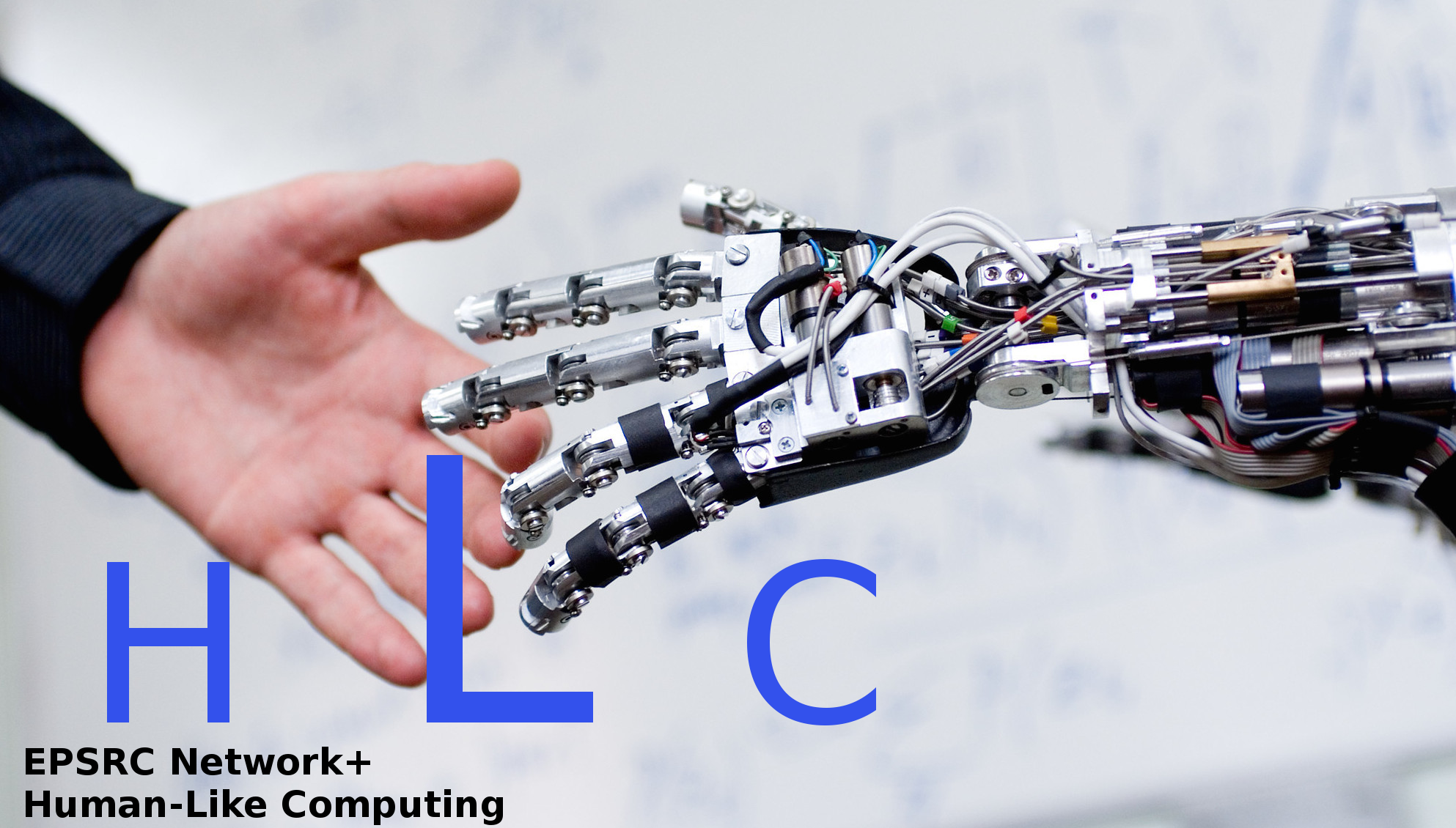
|
3rd International Workshop on Human-Like Computing HLC2022 @ IJCLR |
HLC 2022
Human-Like Computing (HLC) research aims to endow machines with human-like perceptual, reasoning and learning abilities which support collaboration and communication with human beings. Such abilities should support computers in interpreting the aims and intentions of humans based on learning and accumulated background knowledge to help identify contexts and cues from human behaviour. Techniques of this kind are required in applications in which close interactions are required between computers and human users. The workshop aim is to bring together leading experts in AI and Cognitive Science to investigate areas of fruitful interaction in which human co-operative and communicative skills can be studied and modelled computationally. While many of these issues have been prominent for some time in symbolic AI, we are yet to see successful integration of statistical and symbolic AI approaches which achieves the broad range of phenomena present in human behaviour. The workshop will contribute to the objectives of the EPSRC’s HLC area by crystalising the key research issues to be prioritised in this area.
Call for Papers
- Comprehensibility
- Representation Change
- Small data learning
- Memory and forgetting
- Bridging high and low-level
- Verbal and non-verbal
- Intelligent tutoring
- Programming assistance
- Social agents
- Scientific assistance
- Workshop papers: They should describing original works that are not being reviewed or published elsewhere. Submitted papers need not be anonymous, must be written in English, should be formatted using single column and 11pt font, and should not exceed 3 pages including all figures, but excluding references and appendices. You should use the CEUR Latex template or the CEUR Word template. Accepted workshop papers will be published in an online CEUR proceedings.
- Recently published journal papers relevant to HLC: These will be accepted/rejected on the grounds of relevance and quality of the original publication venue. For papers of this category a link to the original work will be published on the conference website. Authors should submit the abstract and the PDF file of the original submission, specifying in the abstract the original journal where the paper was accepted in addition to the acceptance date. Authors submitting a recently published paper should submit it through IJCLR's "Recently Published Papers Track" option from the HLC 2022 EasyChair submission page.
-
Journal track: Authors are invited to submit high-quality HLC work to the Machine Learning Journal Special Issue on Learning & Reasoning:
The upcoming cut-off dates for the journal track are: 1st May 2022, 1st Aug 2022. Accepted papers will be presented at IJCLR 2022 and published at the Machine Learning Journal special issue on Learning & Reasoning. More details, including formatting and submission guidelines, may be found here
https://www.springer.com/journal/10994/updates/17562232
At least one of the authors of accepted papers must register for the conference and present their work.
All questions about submissions should be addressed to Alan
Bundy <a.bundy@ed.ac.uk> and Denis Mareschal
<d.mareschal@bbk.ac.uk>.
For general enquiries about the workshop, please contact Bridget
Gundry <bridget.gundry@imperial.ac.uk>
Publication
Important dates
Please visit the Important Dates page for the HLC conference important dates.
Organisers
Program Chairs:
Alan
Bundy, School of Informatics, University of Edinburgh
Denis
Mareschal, Centre for Brain and Cognitive Development,
Department of Psychological Sciences, Birkbeck College
Program Committee Members:
Ian Apperly, University of Birmingham, UK
Alan Bundy (Track Chair), University of Edinburgh, UK
Tony Cohn, University of Leeds, UK
Simon Colton, Department of Electronic Engineering and Computer Science, Queen Mary University of London, UK
James Cussens, University of Bristol, UK
Artur Garcez, City University London, UK
Ulrike Hahn, Birkbeck College, University of London, UK
Mateja Jamnik, University of Cambridge, UK
Caroline Jay, The University of Manchester, UK
Denis Mareschal (Track Chair), Birkbeck College, University of London, UK
Stephen Muggleton (Track Chair), Imperial College London, UK
Claude Sammut, The University of New South Wales, Australia
Ute Schmid, University of Bamberg, Germany
Amanda Seed, University of St. Andrews, UK
Bernd Stahl, De Montfort University, UK
Mark Steedman, The University of Edinburgh, UK
Alireza Tamaddoni-Nezhad (Track Chair), University of Surrey, UK
Past Workshops
2019: MI21-HLC,
Cumberland Lodge, Windsor Great Park, United Kingdom
2016: MI20-HLC, Cumberland
Lodge, Windsor Great Park, United Kingdom